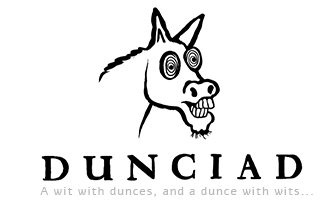
Last night’s insanely lucid COVID-19 dream brought to you by the power of Tesco’s antihistamine tablets was another in a much-loved series of mine. It was one of my bookshop dreams, of which there have been so many over the years.
The fact I dream about bookshops so often probably says a lot about me but not so much the fact that I’m usually happiest in a bookshop. That’s obvious. No, what’s odd is that every time I dream of bookshops, they’re nearly always local. It’s one of my constant regrets that I have to spend money to get to my nearest bookshop. It speaks to my lifelong sense of being cut off from culture and the “real” world.
I also suspect this town must have had a bookshop when I was a child. It’s the only explanation why I dream about one so often. Last night, the shop had a ground floor so crowded that I had to move furniture to get in, but, once upstairs, it opened out into a wonderfully big spread with rooms set aside for individual publishers. There was even a room entirely in the greenish-blue of the old Penguin Modern Classics, which I think is a throwback to my old haunt in the Bluecoat Bookshop when it was in the Bluecoat School in Liverpool. They had a fantastic cabinet packed with the Penguins…
All my best dream bookshops have more than one floor, mirroring the best bookshops in real life. In Manchester, the Waterstones on Deansgate (the best bookshop in the North West) is spread out over three huge floors, with a wonderfully comfortable and decent café / stupidly expensive restaurant (they never seem to decide what it should be) on the top floor. It’s heaven and one of the few places I miss during this pandemic. The two other good book shops, in Manchester Arndale and Warrington, don’t feel so magical because they’re on a single level. Liverpool’s Waterstones is ostensibly multi-level but the ground floor is under-utilised and doesn’t count. It’s really a one level shop and far too small for a city of that size. It’s rather sad. During my time at the university, the city had two big multi-level bookshops: a vast and rather opulent Waterstones at the top of Bold Street, and then the crazily narrow but tall Dillons further down, which covered, I think, five floors. It was later turned into a Waterstones and the city became a one high-street bookshop city. For a time it was a regular haunt and had a really decent cafe hosted by a charismatic Italian. It closed when they moved into Liverpool One and a building which feels much inferior.
Since I’m talking about the best book shops: I also miss Borders. It was a golden time when Warrington had a Borders. It was a fair walk to a retail park down near Bridge Foot, but it was enormous, over two floors. I could spend an entire afternoon there and still not want to leave.
I occasionally have dreams about other bookshops I don’t know if they’re real or not. The most puzzling one is in Manchester or, at least, in my dreams it’s in Manchester. I might be conflating it with one of the huge bookshops I visited the time I squeezed myself onto a National Express coach to have a day book-browsing on Charing Cross Road in London. It’s another multi-level bookshop, really basic in its décor, but packed with cheap books. It feels more like a book warehouse and memories of it belong to a time when I was starved of books. A habit I developed for while was to write to every publisher to ask if they could send me their catalogues. This was long before Amazon and limitless books. I would get these huge bundles of pre-publication blurb and marketing I would pour over, looking for gems – usually science fiction, thrillers, or any non-fiction which ticked my peculiar boxes.
Anyway, details from the rest of last night’s dream… I met an author promoting his book. I first saw him signing something using a brush and ink. He’d illustrated this awful book filled with naively drawn figures (I was drawing a parody David Williams cover last night so this makes sense). He was also dressed in a crazy outfit but once I sat down to talk to him, he transformed into Mark Francois (no idea what it means but I swear this is true). He started to tell me about his career as a self-published children’s author, which he was only doing because it was helping him overcome PTSD after a spell on HMS Sheffield (again, no idea). I remember trying to show him a copy of The Snoot but I couldn’t find it in my bag.
And that, probably, is the crux of the dream. It was another dream about faded hopes and me, the author of a book that nobody wants, in a bookshop that doesn’t exist.


